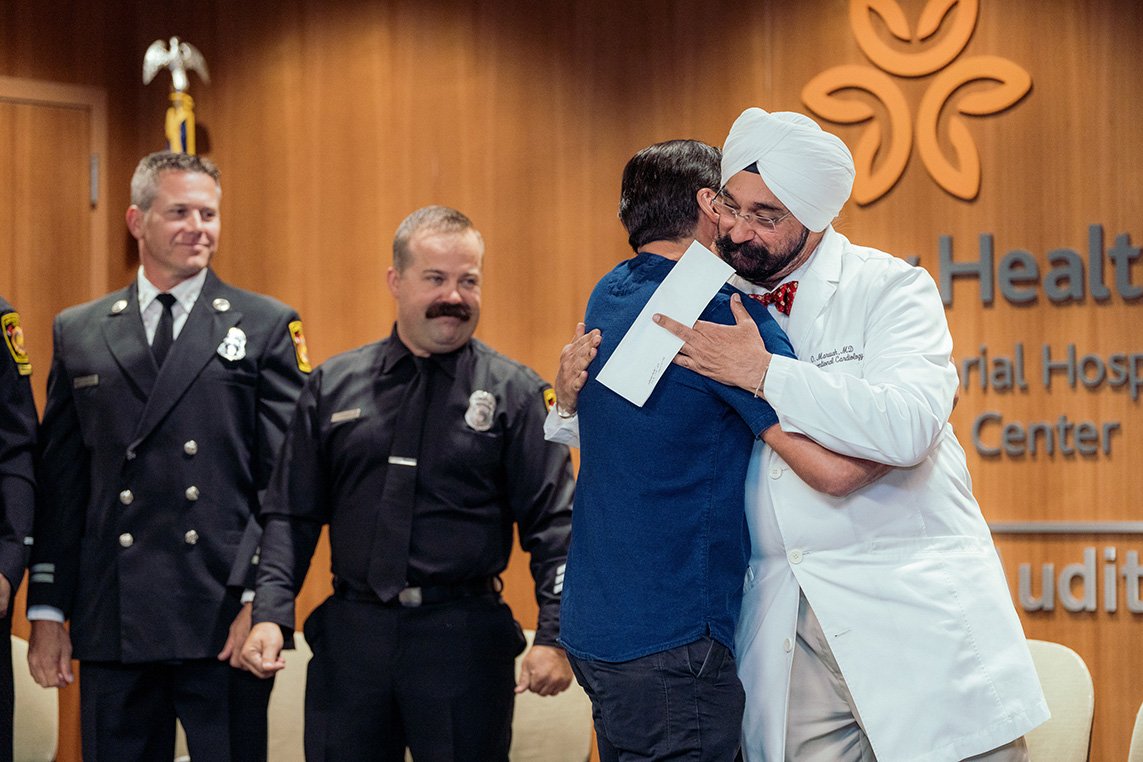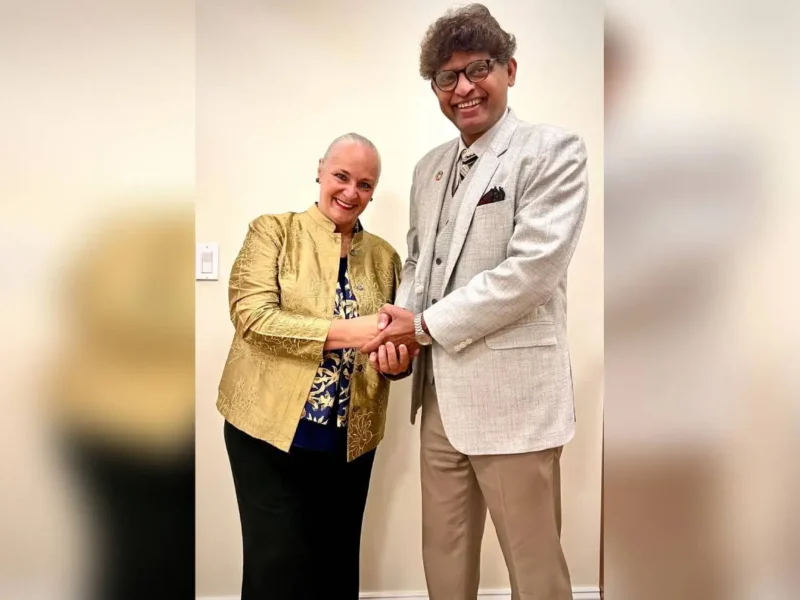
Grateful Marathon Runner Returns To Thank Cardiologist, Team At Glendale, CA
Photo: Marathon runner Glen Phillips embraces Cardiologist Dr. Onkarjit Marwah during a ceremony at Dignity Health – Glendale Memorial Hospital and Health Center.
By REENA RATHORE
LOS ANGELES, CA – April 7 started like any day for Glen Phillips but by the time it ended, the marathon runner had a brush with death.
Phillips suffered a cardiac emergency during a run on a trail in Elysian Park in Glendale, CA. Reacting to the situation, a bystander called 9-1-1 while another sprang into action and performed CPR until the paramedics arrived. He was later transported to Dignity Health – Glendale Memorial Hospital and Health Center where doctors helped save his life.
Cardiologist Onkarjit Marwah, who was the lead doctor on the team, told India-West that Phillips had recurrent chest pains in the days leading up to the cardiac arrest.
“‘Doc, what happened and why did this happen to me?’” Marwah recalled Phillips as saying when he woke up. “Being an athlete, he never thought that he would be developing heart problems or chest pains, so he kept on exercising. When he was running that day, he developed ischemia of the heart…it resulted in a very dangerous arrhythmia called ventricle fibrillation, because of which he passed out on the trail while he was running.”
He explained that most of the time, because of the pain, patients are alerted to the situation and seek timely medical attention, but at times, “when the heart attack causes a dangerous arrhythmia, like in this case, a person will pass out within seconds, and may pass away within a few minutes if help does not arrive.”
But Phillips was fortunate to have received timely attention and care.

“We were able to shock his heart out of the dangerous arrhythmia into a normal rhythm and then bring him immediately to the hospital emergency room,” Marwah told India-West. “In the hospital, he was immediately put on a ventilator for breathing, and then taken to the cardiac Cath Lab immediately, and underwent an angioplasty and stenting of a coronary artery that was occluded that was giving him the heart attack that resulted in the dangerous arrhythmia.”
He was also placed in a hypothermia-induced coma and spent several days in the ICU.
“Hypothermia involves placing an individual into a medically induced coma which also includes bringing a patient’s temperature down to a very low level to save the heart and the brain from ischemic damage,” Marwah elaborated.
Phillips has made an almost full recovery as the damage caused by the heart attack was minimal, Marwah said, adding that saving Phillips was a team effort.
On May 24, during a ceremony organized by the hospital’s administration to recognize the emergency medical personnel who’d helped Phillips, he was able to thank everyone in person who gave him a new lease on life.
“They bring patients with heart attacks and other conditions to the hospital on a daily basis multiple times rescuing patients out in the field in difficult situations. We felt it was imperative for us, and extremely important to recognize the emergency medical services for what they do every day saving lives,” Marwah said. “Also, that particular week ended up being EMS week, so it seemed like the most appropriate time to recognize them.”
Leading risk factors for heart disease include high blood pressure, high cholesterol, diabetes, smoking, obesity, genetic predisposition, and stress, he said, adding that sometimes there are no particular risk factors.
Marwah stressed that one can adopt a heart-healthy lifestyle by eating right, exercising, avoiding smoking and a sedentary lifestyle, and reviewing their blood pressure/cholesterol, blood sugar, body fat, and of course, finding ways to relax.
“If an individual has multiple risk factors for coronary disease, they should definitely see their physician on a regular basis to keep all the health factors and blood test results under control so as to avoid complications of these risk factors that may result in heart attacks or angina or chronic coronary artery disease requiring angioplasty or open- heart surgery,” he said.




